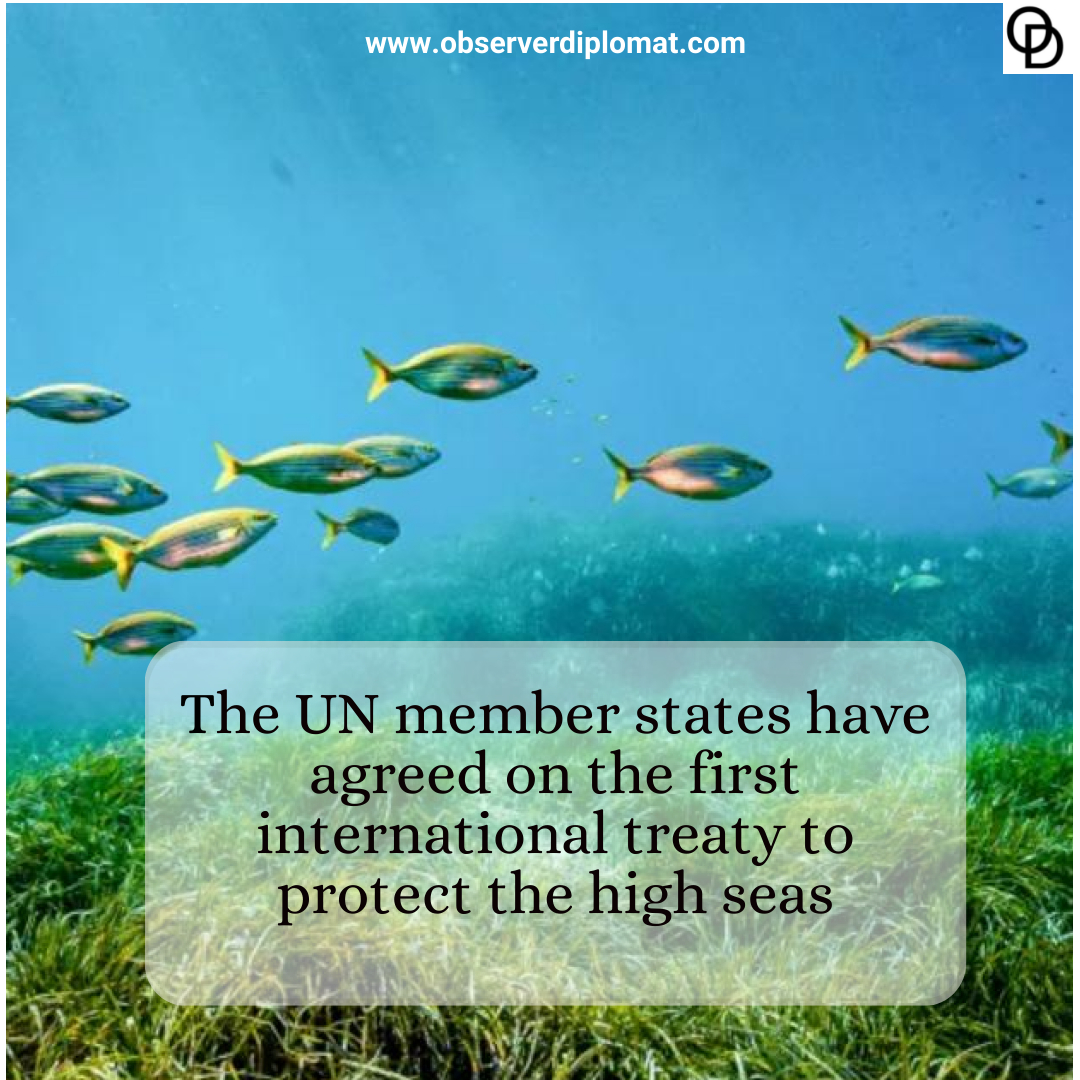The high seas begin at the border of countries’ exclusive economic zones, which extend up to 370km (200 nautical miles) from coastlines. Beyond that point, the seas are under the jurisdiction of no country. Even though the high seas comprise more than 60 percent of the world’s oceans and nearly half the planet’s surface, they have long drawn far less attention than coastal waters and a few iconic species.
Ocean ecosystems create half the oxygen humans breathe and limit global warming by absorbing much of the carbon dioxide emitted by human activities. But they are threatened by climate change, pollution and overfishing.
Regarding this scenario, the UN member states have finally agreed to a text on the first international treaty to protect the high seas, a fragile and vital treasure that covers nearly half the planet. After years of negotiations, negotiators from more than 100 countries completed the UN treaty, a long-awaited step that environmental groups say will help reverse marine biodiversity losses and ensure sustainable development.
The legally binding pact was finally agreed after five rounds of protracted UN-led negotiations. The treaty is seen as a crucial component in global efforts to bring 30 percent of the world’s land and sea under protection by the end of the decade, a target known as “30 by 30” agreed in Montreal, Canada.
The treaty will also oblige countries to conduct environmental impact assessments of proposed activities on the high seas.
Economic interests were a major sticking point throughout the latest round of negotiations, with developing countries calling for a greater share of the spoils from the “blue economy”, including the transfer of technology.
An agreement to share the benefits of “marine genetic resources” used in industries like biotechnology also remained an area of contention until the end, dragging out talks.
















